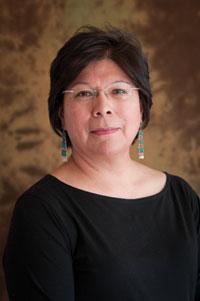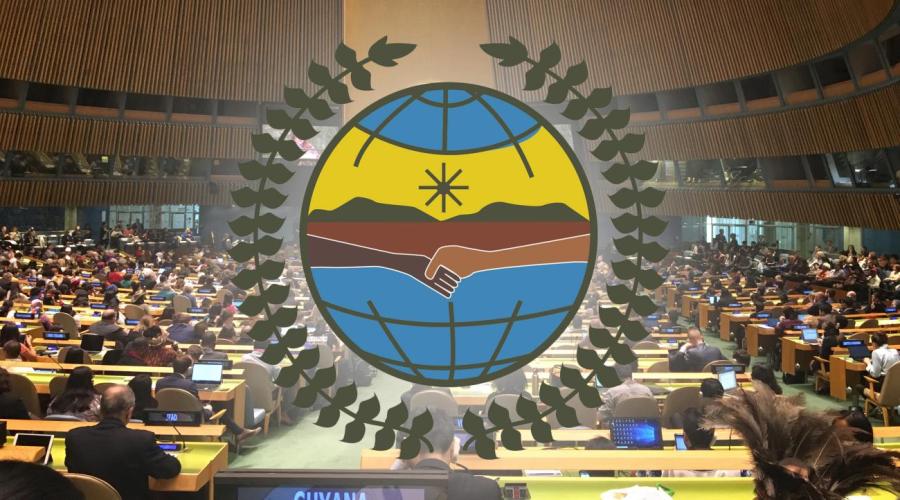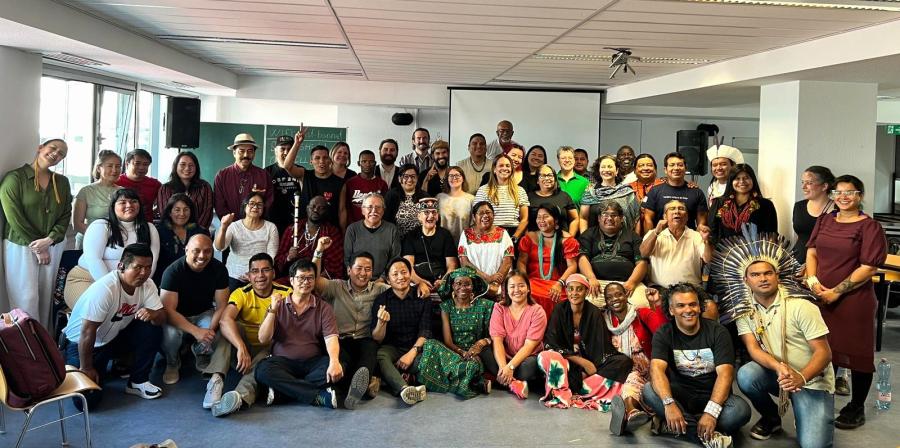
“Yá'át'ééh” Greetings!
Hello friends and readers.
In this issue of Cultural Survival Quarterly, there is much to be celebrated. Aboriginal artist Richard Bell invites us into his colorful and provocative world of visual art; Indigenous flautist Hawk Henries reminds us of the peace music can bring; the Mayan calendar is explored; the strength and determination of three women ensure that the Sauk language is not forgotten; and in Hawaii, pa'i 'ai is finally recognized as a truly Indigenous food source. I hope you enjoy the Quarterly and note the new look of the magazine. At Cultural Survival we are increasingly working to effectively use new communications media and strengthen the integration of printed materials with the website. Cultural Survival Quarterly has added a new section: “News From Around the World.” In this segment of the magazine, we report victories and other news ranging from court rulings that recognize Indigenous Peoples’ efforts to preserve land, resources, and languages to governments that champion human rights, justice, and dignity. We also include progress updates on our Global Response campaigns in the Quarterly, on our website, and via our E-newsletter. These campaigns support Indigenous communities as they struggle to protect their environment and the biodiversity on which they depend.
When you send letters and emails for our letter-writing campaigns, you share in our victories—like the one we are celebrating now in Papua New Guinea. Please see the current “Global Response Campaign” insert in this issue and lift it out of the magazine and share it with friends, families, and colleagues. Our “Youth Action Alert” encourages young students and teachers to raise their voices, too, for environmental protection.
While there is so much to be thankful for, there are still many challenges that Indigenous people face. These serious and potentially devastating issues, like the proposed damming of the Patuca River in Honduras, must be heeded. In an article written by Kendra McSweeney, Zoe Pearson, Sara Santiago, and Ana Gabriela Dominguez,we are invited to travel alongside Doña Rufina Cardona, an elder, as she relates the Patuca River’s turbulent history, and its ever-present capacity to hold the hearts and souls of the Miskitu people. Many of the stories in this issue speak to the interconnectedness of the struggles of all Indigenous Peoples against impartial governments that have forgotten justice, rights, and responsibilities. For example, Aboriginal law professor Mick Dodson still must confront the Australian government over human rights issues and land titles. There are stories that will resonate with those who have empathy and integrity, such as the ongoing challenge of the Yuchi people of Sapulpa, Oklahoma to keep their language vital and alive.
During times of celebration, there is always a corner for reflection. Cultural Survival is just one organization trying to make many small, yet graceful responses to the perpetual barrage of injustices to the earth’s Indigenous Peoples. As the seasons of hope and joy draw closer, I hope that many of you will remember that peace and justice are connected and that there really is a way to combat injustice and cruelty. We can all be reflective and graceful in how we walk on this earth. We can all be musicians, artists, and poets of humanity and hope. We can all see with the clear, sharp eyes of the elders, like Doña Rufina Cardona. Indigenous hearts may flow with the rivers of our past, but we continue to live in the present and pray the rivers will still flow, always hopeful and ready to fight for the future of our children.
Finally, as an organization, we remain mindful of our role in consumption of natural resources, waste, and costs of production. To that end we will continue exploring how to best communicate these critically important issues and the voices of Indigenous people, as well as share with you the work that we are doing.
Suzanne Benally, Executive Director
(Navajo and Santa Clara Tewa)



